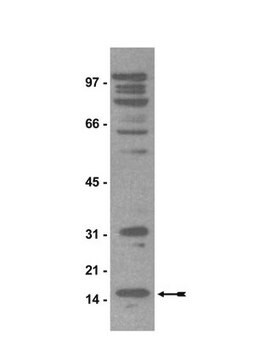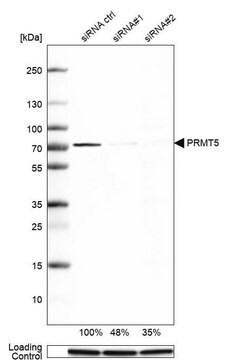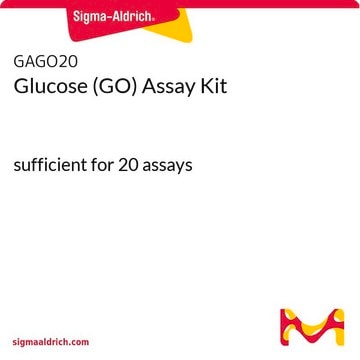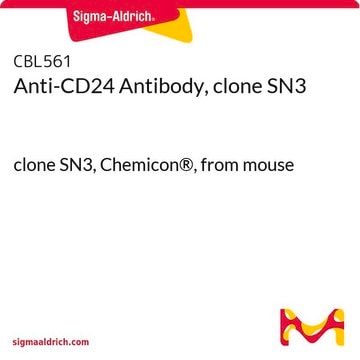07-405
Anti-PRMT5 Antibody
Upstate®, from rabbit
Synonym(s):
72 kDa ICln-binding protein, HMT1 hnRNP methyltransferase-like 5, Jak-binding protein 1, SKB1 homolog, SKB1 homolog (S. pombe), Shk1 kinase-binding protein 1 homolog, protein arginine methyltransferase 5, skb1 (S. pombe) homolog
About This Item
Recommended Products
biological source
rabbit
Quality Level
antibody form
purified immunoglobulin
antibody product type
primary antibodies
clone
polyclonal
species reactivity
mouse, human
manufacturer/tradename
Upstate®
technique(s)
immunoprecipitation (IP): suitable
western blot: suitable
isotype
IgG
NCBI accession no.
UniProt accession no.
shipped in
wet ice
target post-translational modification
unmodified
Gene Information
human ... PRMT5(10419)
General description
Specificity
Immunogen
Application
An independent laboratory has reported that this antibody immunoprecipitates active PRMT5 from HeLa cell lysate.
Epigenetics & Nuclear Function
Histones
Quality
Western Blot Analysis:
0.5-1 μg/mL of this lot detected PRMT5 in RIPA lysates from 3T3/A31, NIH 3T3, HeLa, WI-38, and Jurkat cells.
Target description
Linkage
Physical form
Storage and Stability
Handling Recommendations: Upon receipt, and prior to removing the cap, centrifuge the vial and gently mix the solution. Aliquot into microcentrifuge tubes and store at -20°C. Avoid repeated freeze/thaw cycles, which may damage IgG and affect product performance. Note: Variability in freezer temperatures below -20°C may cause glycerol containing solutions to become frozen during storage.
Analysis Note
Jurkat cell lysate, HeLa cell lysate.
Included Positive Antigen Control:
Catalog # 12-303, Jurkat lysate. Add 2.5 μL of 2- mercaptoethanol/100 μL of lysate and boil for 5 minutes to reduce the preparation. Load 20 μg of reduced lysate per lane for minigels.
Other Notes
Legal Information
Disclaimer
Not finding the right product?
Try our Product Selector Tool.
recommended
Storage Class Code
10 - Combustible liquids
WGK
WGK 1
Certificates of Analysis (COA)
Search for Certificates of Analysis (COA) by entering the products Lot/Batch Number. Lot and Batch Numbers can be found on a product’s label following the words ‘Lot’ or ‘Batch’.
Already Own This Product?
Find documentation for the products that you have recently purchased in the Document Library.
Our team of scientists has experience in all areas of research including Life Science, Material Science, Chemical Synthesis, Chromatography, Analytical and many others.
Contact Technical Service








